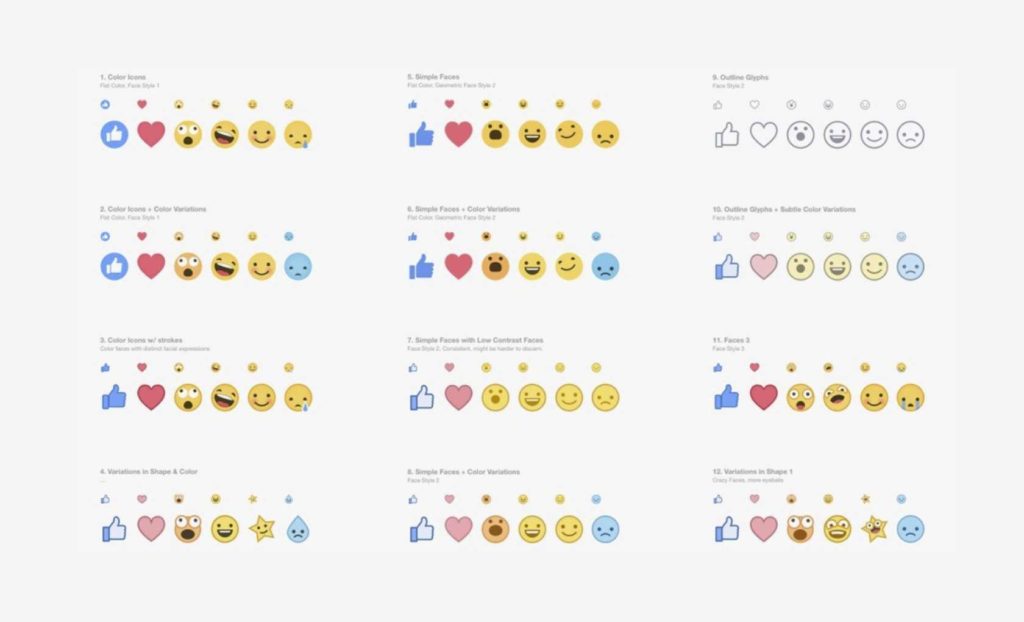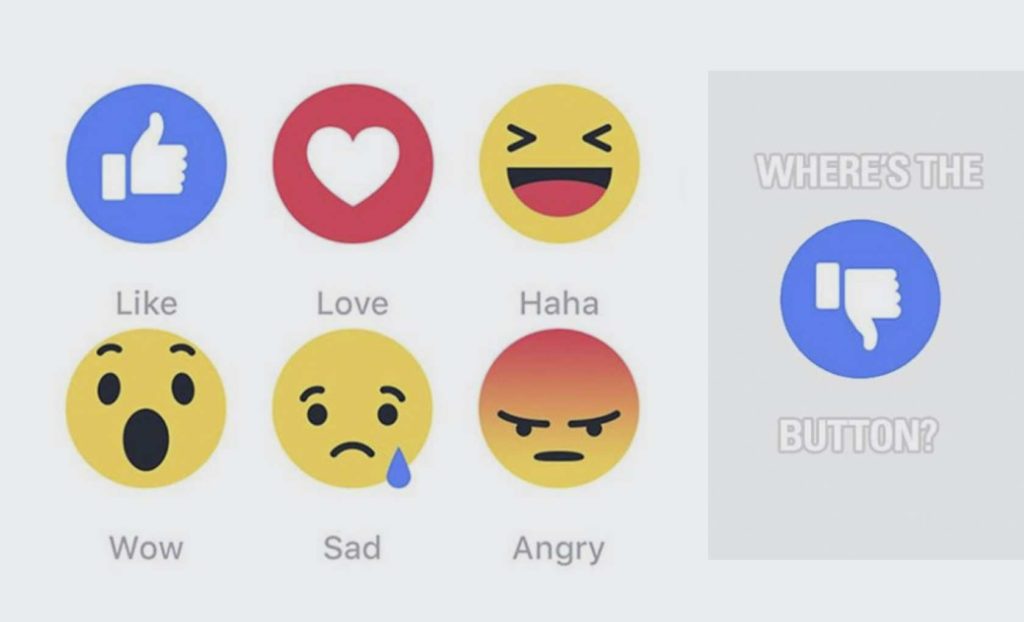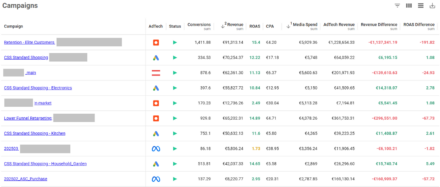How Facebook reactions will affect marketers

Unless you’ve been living under a rock in recent months, you’ll have heard about Facebook’s latest update. An answer to the people’s demand for a dislike button has now been rolled out worldwide, in the form of 5 additional reactions you can choose in addition to the classic “like”.
This shiny new feature is the result of a whole year of researching, testing, and re-testing by the dedicated team at Facebook. Unsurprisingly, a colossal amount of thought went into which emotions should be made available to users, which colour saturation to use, how exaggerated the emoji’s should look.

As an app user, it allows you to be much more expressive without resorting to typing out a comment. More importantly however it allows you to see how other people have reacted to content, with this feature showing users the top 3 reactions on all posts. Users can now gauge public opinion at a glance, without even venturing into the comment box.
And no, we will never ever see a “dislike” button on Facebook, because “Facebook representatives have also said that the worry with a dislike button was that it would be used to bully or upset people, down-voting their posts as a way of being cruel to the people.” Cue a collective sigh of relief from all social media marketers all over the world.
There has been a noticeable amount of paranoia surrounding this new feature prior to release, with headlines like “Marketers, Steel Yourself: Facebook Expands ‘Reactions’ Beyond ‘Likes’ Globally”. Its release, however, has proven that this fear is quite unjustified. Marketers, Facebook Reactions are GOOD for you – and here’s why…
Users Will Generate Sentiment Data For You
No need for fancy sentiment analysis tools – if you’ve got a community that is likely to engage on your posts and a decent sample of engagement to analyse, sentiment analysis will from now on be conducted for you by your audience. It’s a marketer’s dream – outsourcing your work to your own consumers. It’s also a real blessing for Pages that don’t get many comments, as it does allow them to perceive unspoken sentiment – unless of course everyone simply “likes” their posts with no further reactions.
While no further analytics are available at the moment, we would expect Facebook Insights to be updated, giving Pages the ability to view sentiment on their posting activity. With a large enough sample, this can lend itself to some quick and easy sentiment reporting, and – on a more granular level – marketers and publishers will be able to match these reactions to different types of content and products being promoted on a brand Page. This extra data point will no doubt be an asset for any company using data-led social media marketing.
You May Well Be Able To Target Your Facebook Ads By Sentiment In The Future
Facebook has not yet confirmed that this feature will have anything to do with paid advertising. However, in theory, it only makes sense that this feature will somehow be worked into Facebook’s targeting options – as yet another feature that helps cement its status as the world’s leading social media advertising platform. We would expect Facebook to record every single Reaction that users make, the rate at which they react to posts, and even the types of Reactions that they are likely to choose, to feed into their already sophisticated targeting options. Will we be going far beyond interest-targeted advertising, and delving into sentiment-targeted advertising? We’ll have to wait and see…

You Will Not Be Affected By Negative Reactions… For Now
Despite the fact that Facebook Reactions have been conceived in a way that makes it difficult for anyone to show disinterest or express dislike towards a post, many have already started interpreting the “angry” emotion as a negative reaction. While for some topics this might just be another expression of opinion, this is still the closest thing we have to a “dislike” button.

Will this affect the position of your posts in the News Feed? Of course not. Krug wrote in a post on Facebook Newsroom that “If someone uses a Reaction, we will infer they want to see more of that type of post. In the beginning, it won’t matter if someone likes, ‘wows’ or ‘sads’ a post — we will initially use any Reaction similar to a Like to infer that you want to see more of that type of content. Over time we hope to learn how the different Reactions should be weighted differently by News Feed to do a better job of showing everyone the stories they most want to see.”
So perhaps, in the future, users may be able to let the algorithm know that they would like to see more posts that are likely to elicit a positive Reaction from them – or even more posts that are likely to get a “Wow” out of them.
Perhaps even posting activity from Pages that only get “likes” as opposed to any further Reactions might get suppressed in the News Feed. Right now though, marketers simply need to remember that any Reaction is a good signal for their page – although it never hurts to improve posting quality and keep users as engaged as possible.
Own your marketing data & simplify your tech stack.
Have you read?
Chrome’s announcement on dropping cookie opt-in last month closed the door on a 5 year saga for marketers. But what is the landscape like in 2025 for cookie-based measurement?
Generative AI is transforming the way that marketers plan and assemble content for their Paid Ads. As big platforms like Google, Meta and TikTok increasingly build the tools needed to...
In a surprising move that has sparked heated debate, Mark Zuckerberg announced on his Instagram that Meta will be reducing its levels of censorship and in particular fact-checking on its...


